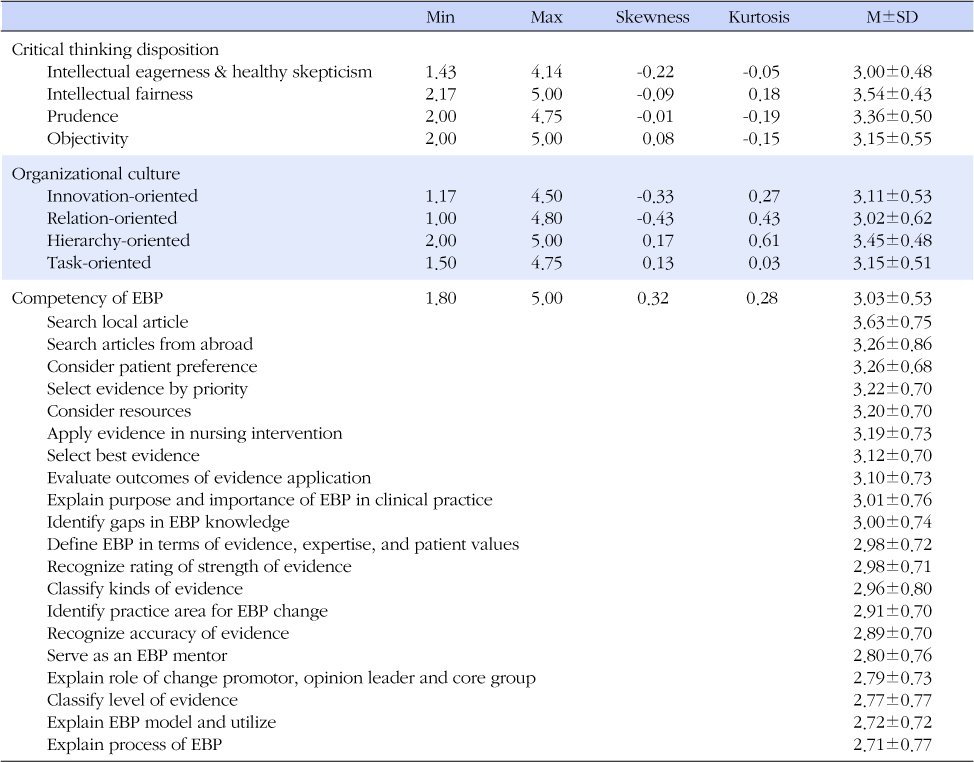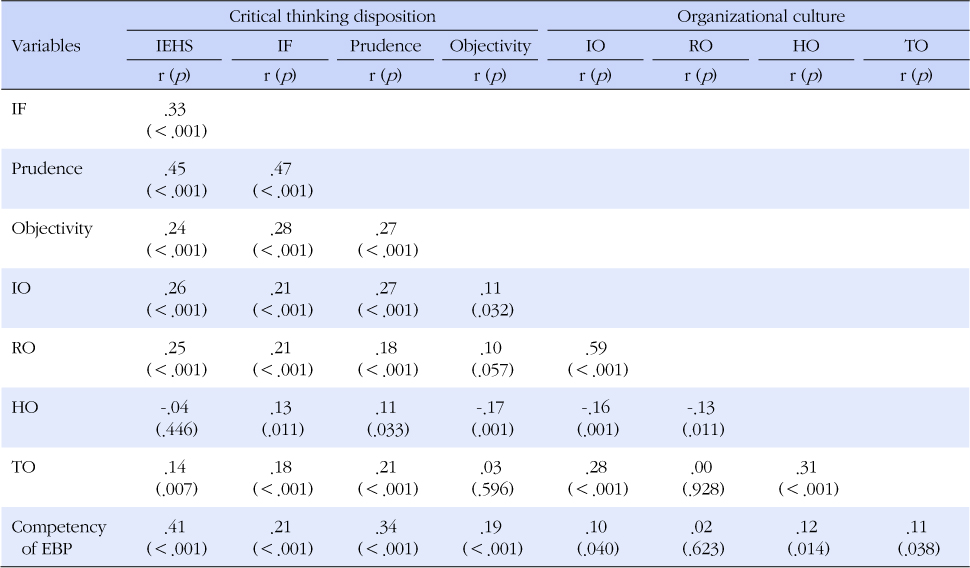1Department of Nursing, Dongnam Health University, Korea.
2Department of Nursing, Ajou University Hospital, Korea.
Copyright © 2015 Korean Academy of Nursing Administration
This is an open access article distributed under the terms of the Creative Commons Attribution Non-Commercial License (http://creativecommons.org/licenses/by-nc/3.0/), which permits unrestricted non-commercial use, distribution, and reproduction in any medium, provided the original work is properly cited.



*Statistical analysis was excluded as it was improper to compare; EBP=Evidence-based practice.
EBP=Evidence-based practice.
EBP=Evidence-based practice, IEHS=Intellectual eagerness & healthy skepticism; IF=Intellectual fairness; IO=Innovation-oriented, RO=Relation-oriented, HO=Hierarchy-oriented, TO=Task-oriented.
EBP=Evidence-based practice; *Dummy variables (Marital status 1=married, 0=single/Education 1=≥Graduate, 0=others/Position 1=≥head nurse, 0=others/Attendance at lecture -Critical thinking 1=yes, 0=no/Attendance at lecture -EBP 1=yes, 0=no/Have heard of the EBP? 1=yes, 0=no).
*Statistical analysis was excluded as it was improper to compare; EBP=Evidence-based practice.
EBP=Evidence-based practice.
EBP=Evidence-based practice, IEHS=Intellectual eagerness & healthy skepticism; IF=Intellectual fairness; IO=Innovation-oriented, RO=Relation-oriented, HO=Hierarchy-oriented, TO=Task-oriented.
EBP=Evidence-based practice; *Dummy variables (Marital status 1=married, 0=single/Education 1=≥Graduate, 0=others/Position 1=≥head nurse, 0=others/Attendance at lecture -Critical thinking 1=yes, 0=no/Attendance at lecture -EBP 1=yes, 0=no/Have heard of the EBP? 1=yes, 0=no).